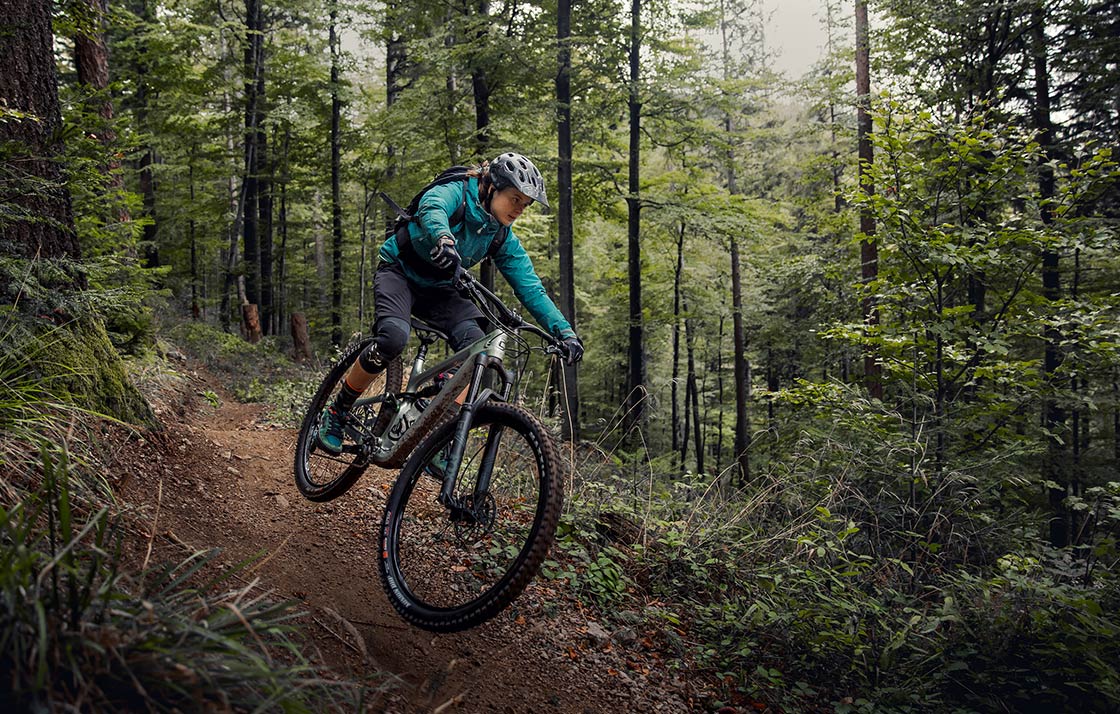As part of the launch for the new 130 mm travel trail bike, the Habit, we headed to Cannondale’s European HQ in Freiburg, Germany. Freiburg is certainly not bad place to put the office of a global mountain bike brand. Though it doesn’t have quite the grandeur of the not-too-distant Alps, it sits right alongside the vastness that is the Black Forest. We arrived just as autumn was announcing its presence – with it came a thick fog which made for a rather atmospheric pedal up into the woods.
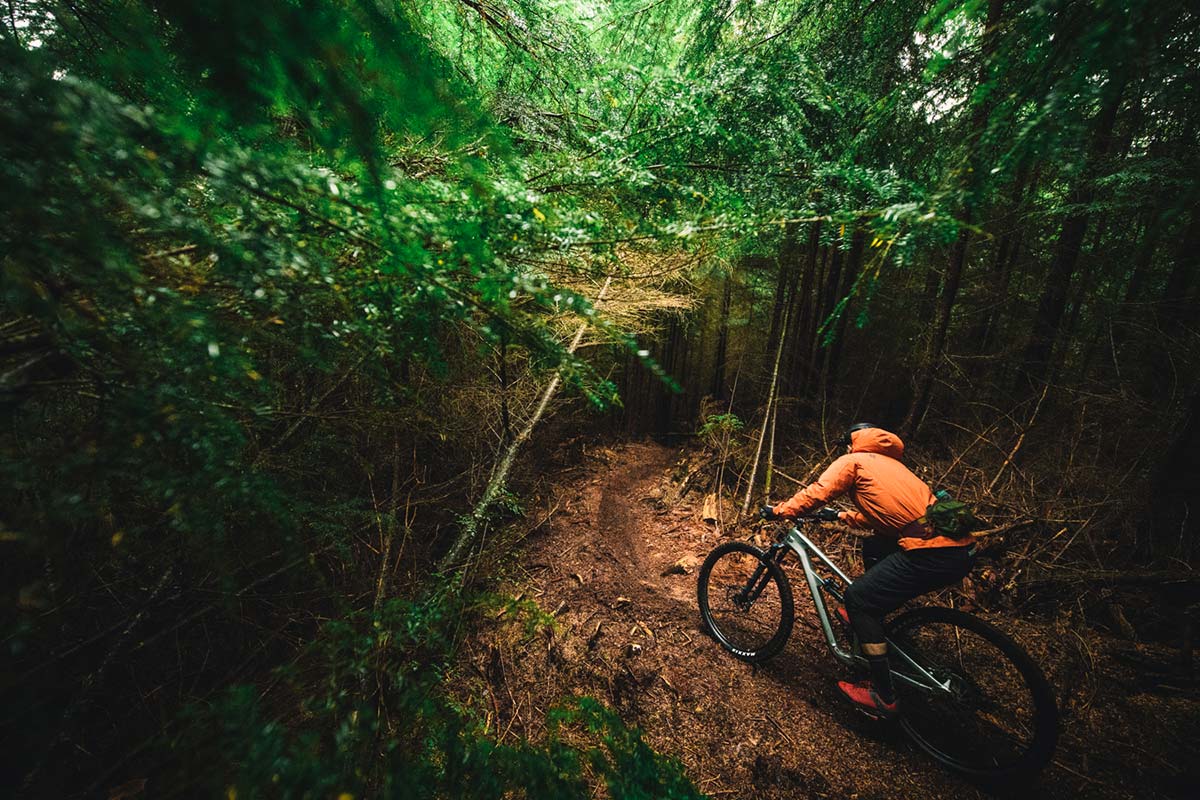
The new Habit bears little resemblance to its predecessor. The single-pivot swing-link actuated shock gives way to a 4-bar linkage suspension platform, size-specific engineered to provide riders of all shapes and sizes with the same ride characteristics. Read more about this and Cannondale’s new Proportional Response design philosophy here.
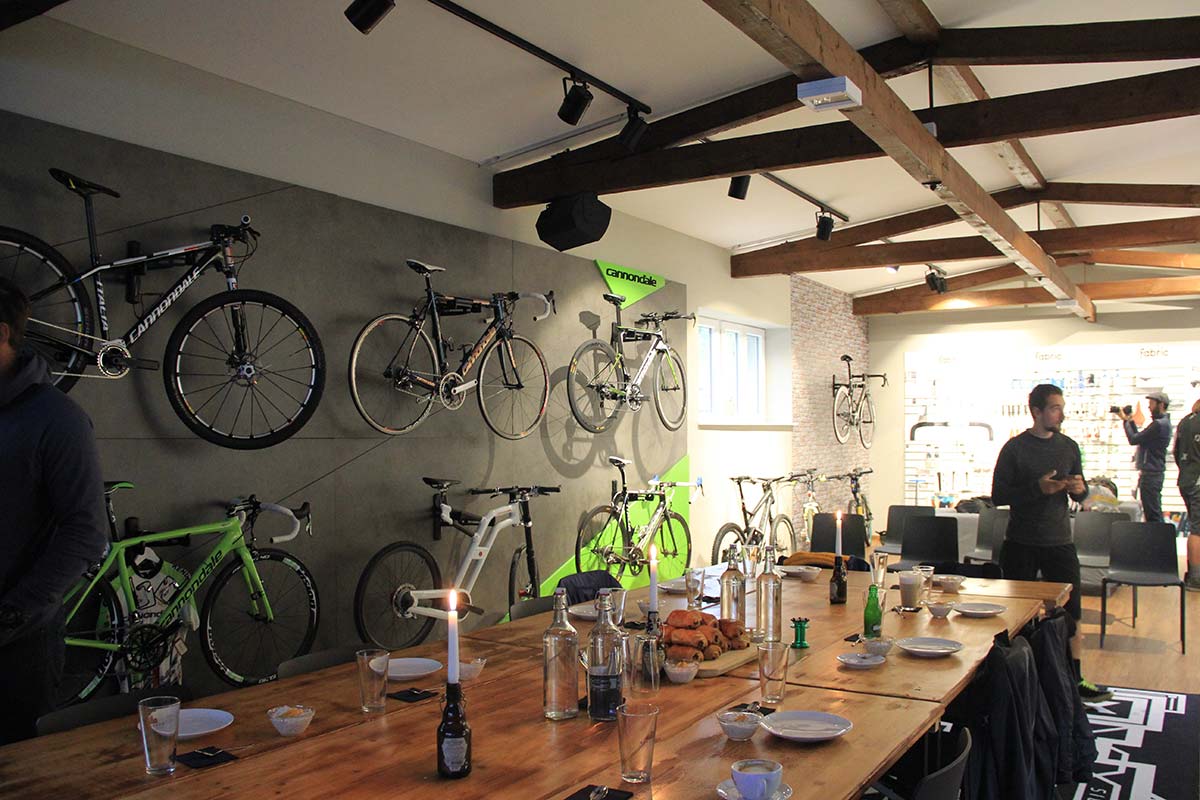
The trip began with a warm welcome into Cannondale’s HQ which sits in the center of Freiburg, suspiciously within spitting distance of a brewery. Walking into the office was like walking into a museum of all things Cannondale. Of course, the lefty fork was on display in its various iterations but there was even a righty to ogle at!
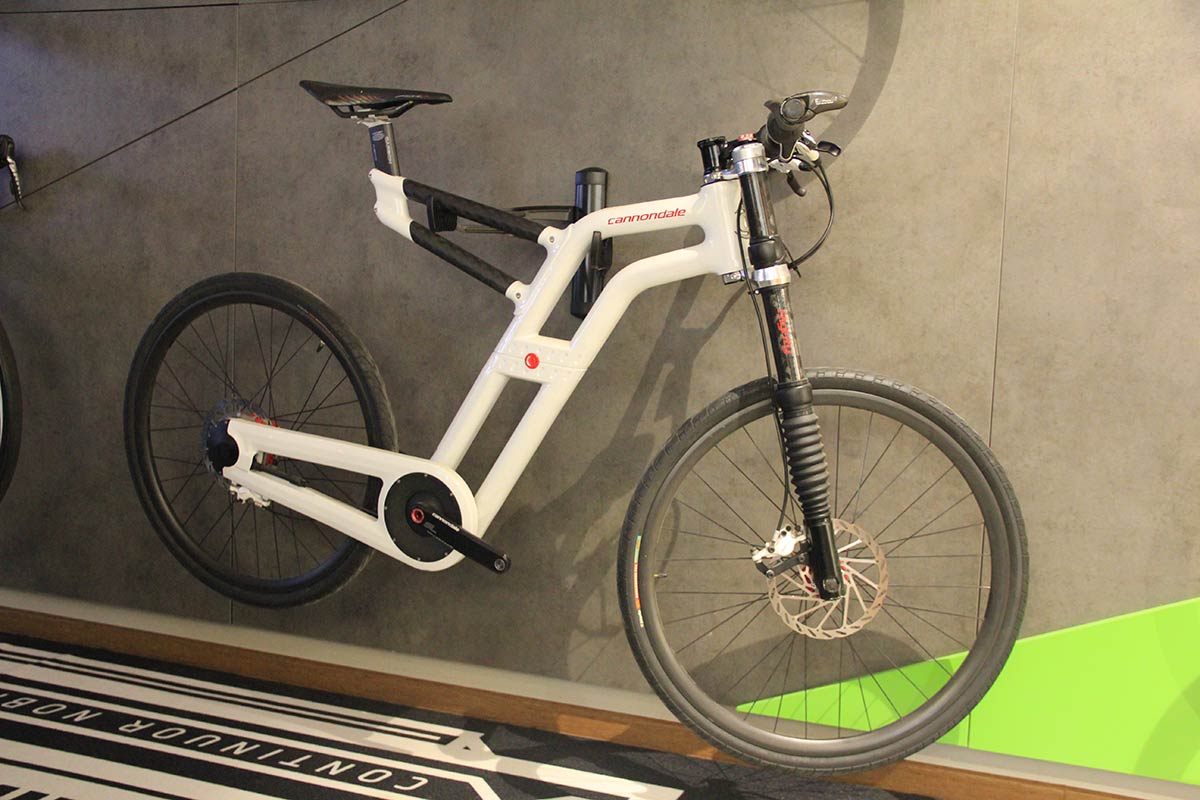
Following the obligatory marketing spin, we headed out to the adjoining workshop for bike set-up and out onto the trails straight from the office door.

Frame design engineer Luis Arraiz – the man responsible for Cannondale’s new Proportional Response Design Philosophy – was on hand to explain the finer points of suspension kinematics.
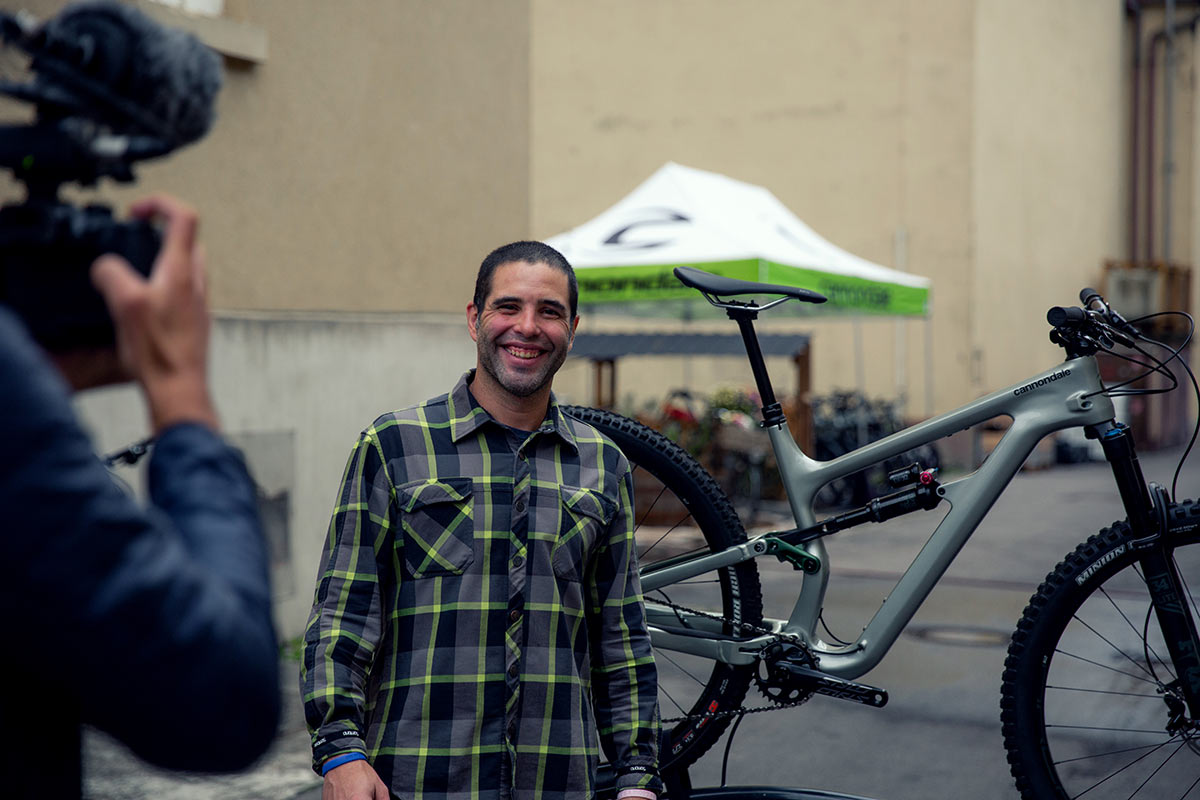
First Ride Impressions
Cannondale served us a 400 m climb for breakfast. The vast majority of this was a gentle fire road climb interspersed with some short sections of not-too-technical singletrack. I rode the Cannondale Habit Carbon 2, a $5,250 model of the 130 mm travel trail bike with Carbon front triangle and alloy rear.
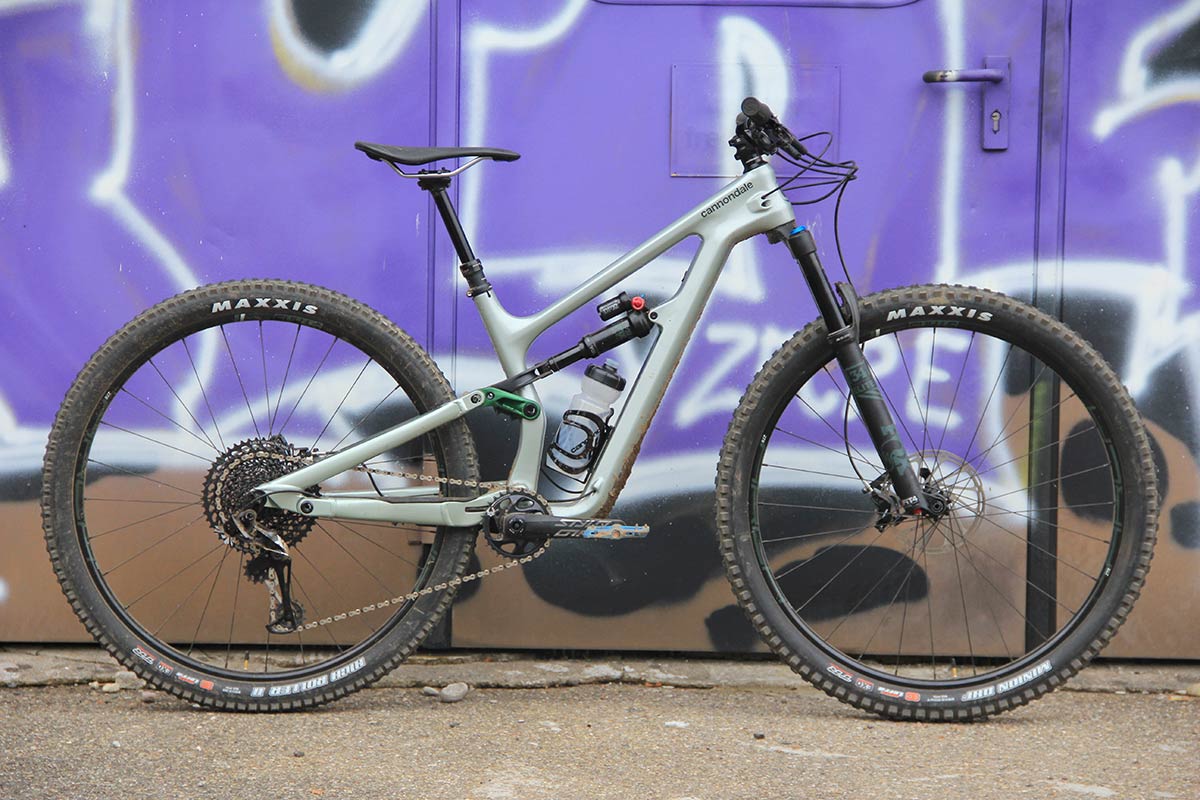
My first impression of the bike was the seemingly perfect fit. At 5 ft 4 inches I opted for the small – the reach of 40 cm was very comfortable and the effective seat tube angle of 74.5° provided an effortless and efficient-feeling pedaling experience. The 12-speed SRAM GX Eagle 10-50 drivetrain coupled with 29 inch wheels may have had something to do with that. I was rather appreciative of the 500% gear ratio when the group’s pace became testing.
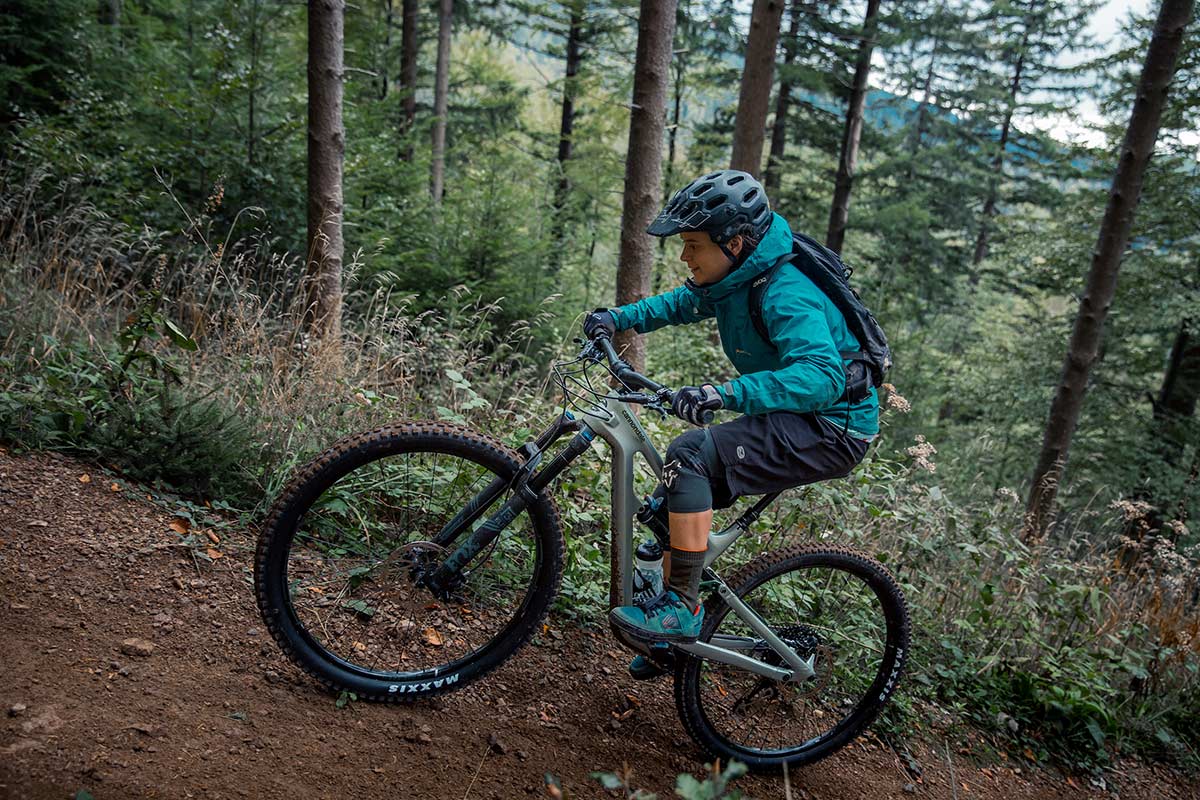
Ascending
The Carbon 2 is kitted out with a Fox Float Performance Elite DPX2 EVOL rear shock. Though not entirely recommended I opted to climb our first hill with the shock in the fully open position to check out the pedal bob. I was pleasantly surprised to find it was negligible even with the shock in descend mode – credit to Luis Arraiz’s efforts to engineer optimal anti-squat characteristics.
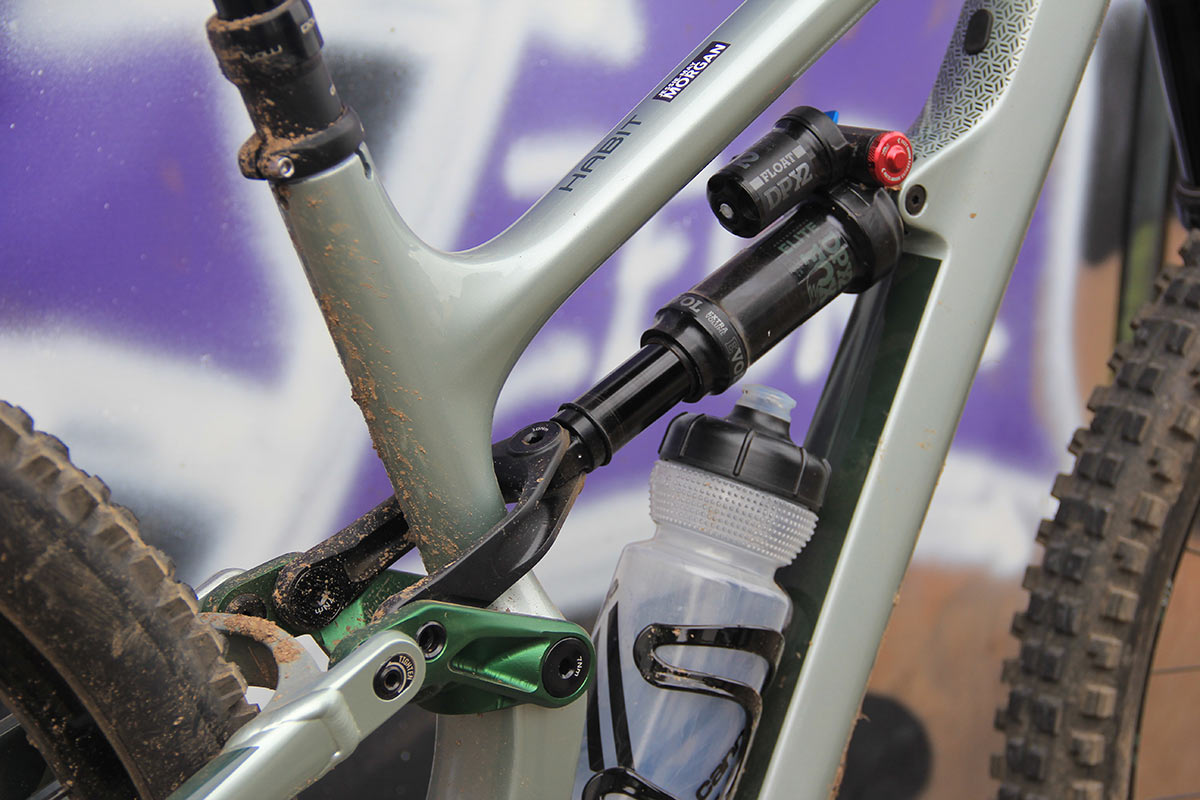
The slack 66° head angle is offset with a 51 mm fork rake, shortening the trail of the bike to 11.2 cm to provide accurate steering. Though not exhaustively tested due to the lack of technical climbing, the steering did feel pretty responsive and accurate with very little desire to ‘wander’.
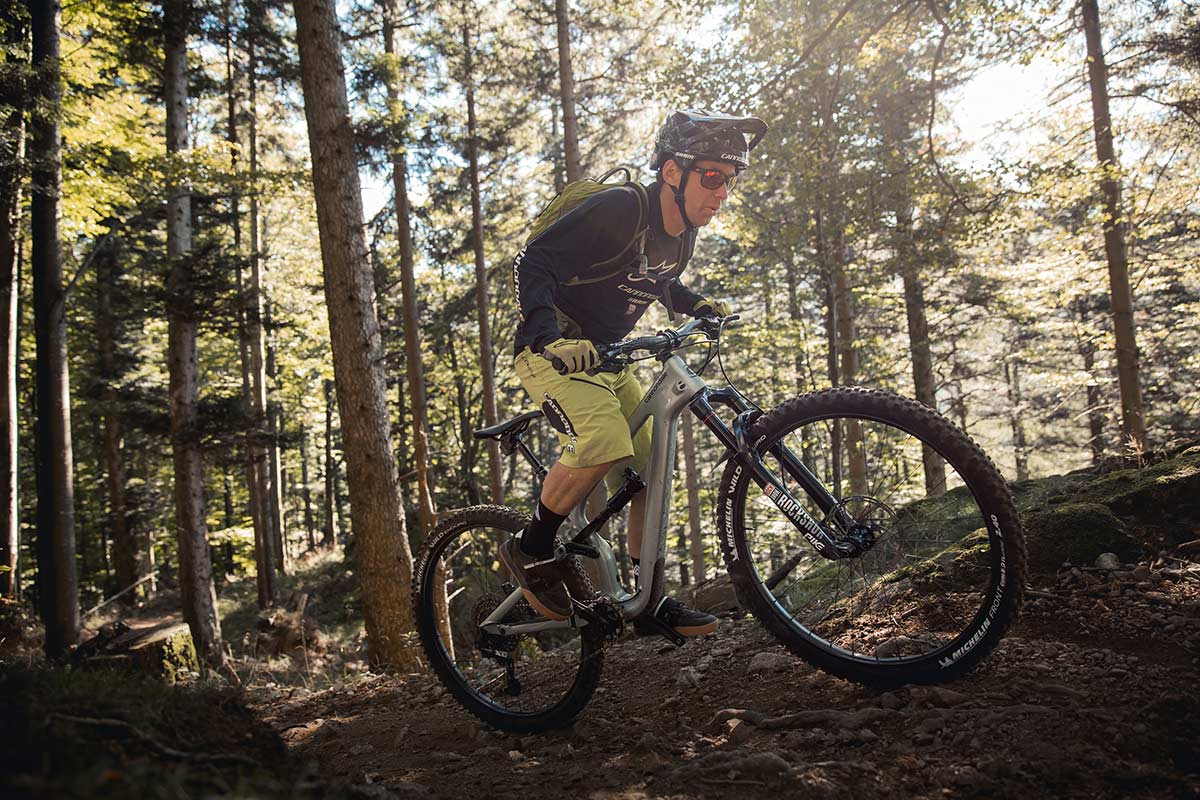
Descent Impression
Our 400 m climb was rewarded with a fast and loose traverse descent with tight-as-you-like switchbacks. Bolting straight into the corners I was just about able to haul the bike around the hairpins. The 29 inch wheels carried great speed along the traverses and the bike felt confident at those high speeds – no unnerving twitchiness.
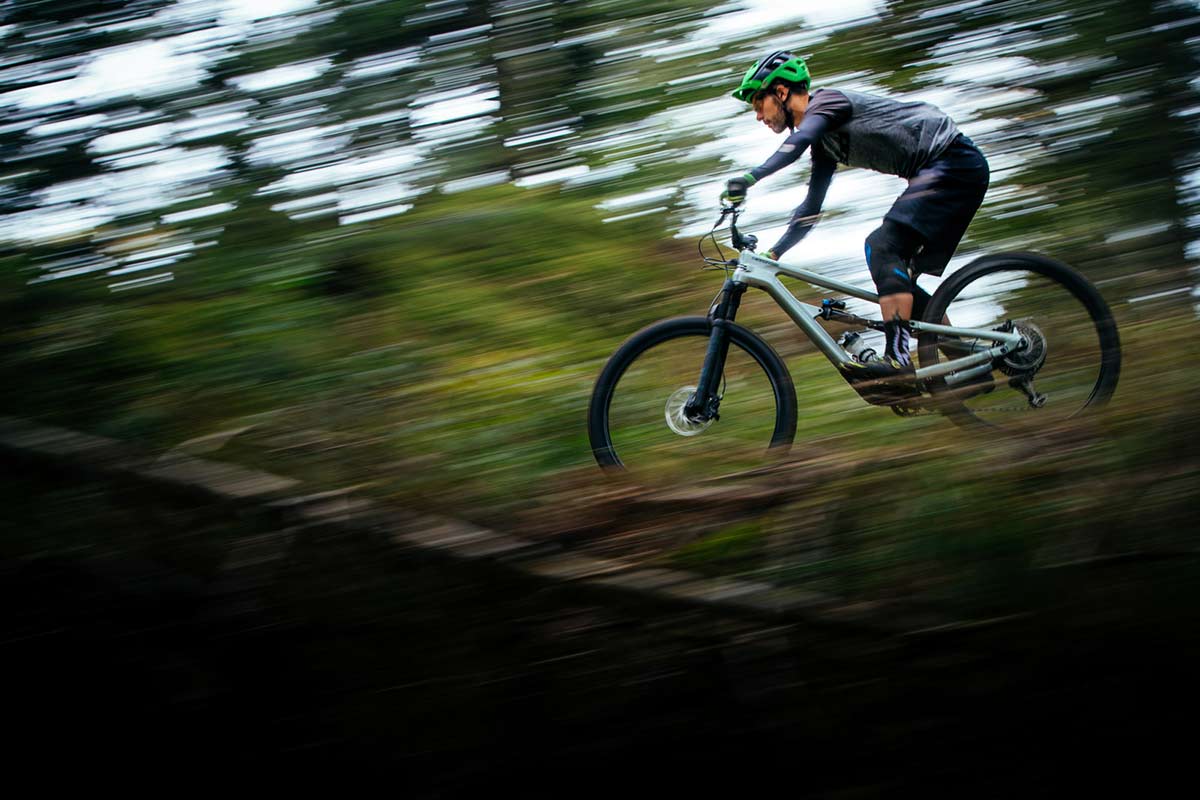
We took a 20-minute gondola ride on the Schauinsland Cable Car up to 1284 m above sea level to join the Canadian Trail (aka the Slingshot) to begin the biggest descent of the day. This began with a super fast descent on a wide open fire road with a loose surface. The bike’s handling of this terrain was totally acceptable with the rear wheel behaving as I would expect it to, maintaining nice traction over the rough stuff.
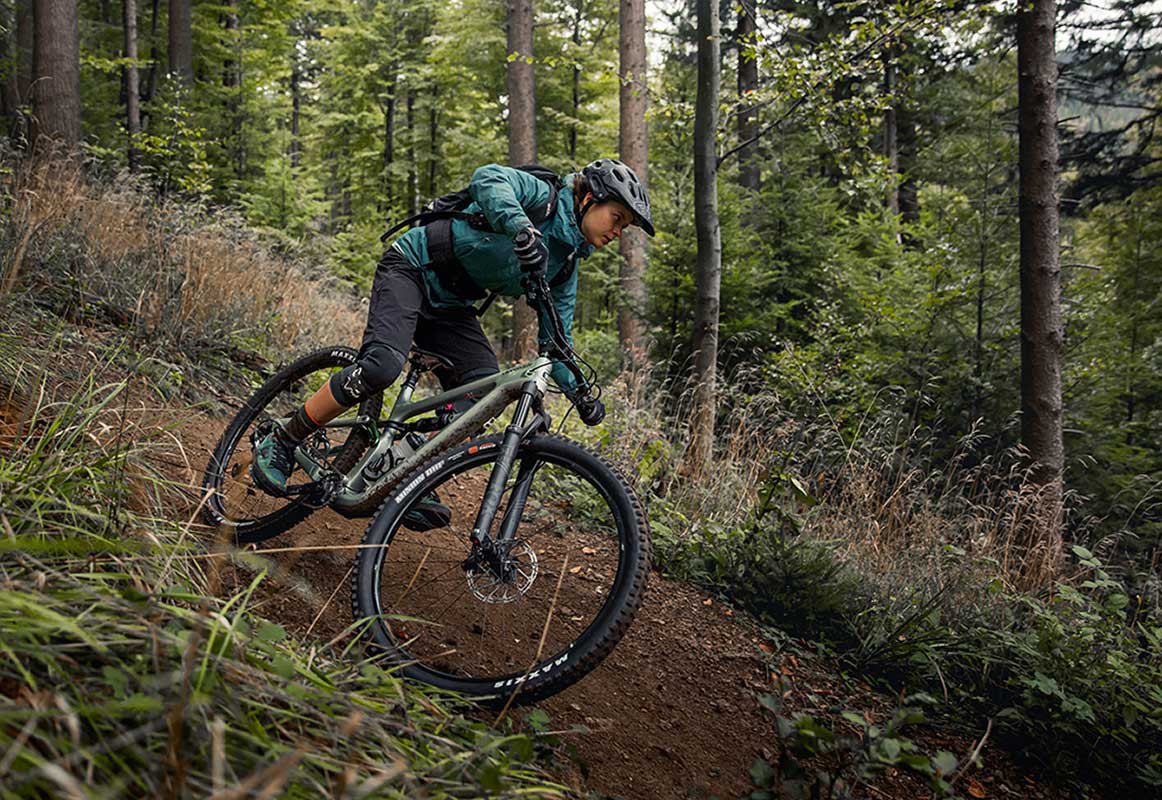
The trail turned into a gnarlier piece of rooty and rocky singletrack and with it came a nice bit of gradient to keep us on our toes. Popping a manual over some of the rocks and roots I allowed the rear wheel to roll through the bumps. I never felt as though the rear wheel was getting ‘caught’ by those features, as I have sometimes felt with other full suspension bikes. The suspension took the bumps in its stride allowing me to carry momentum through these sections.
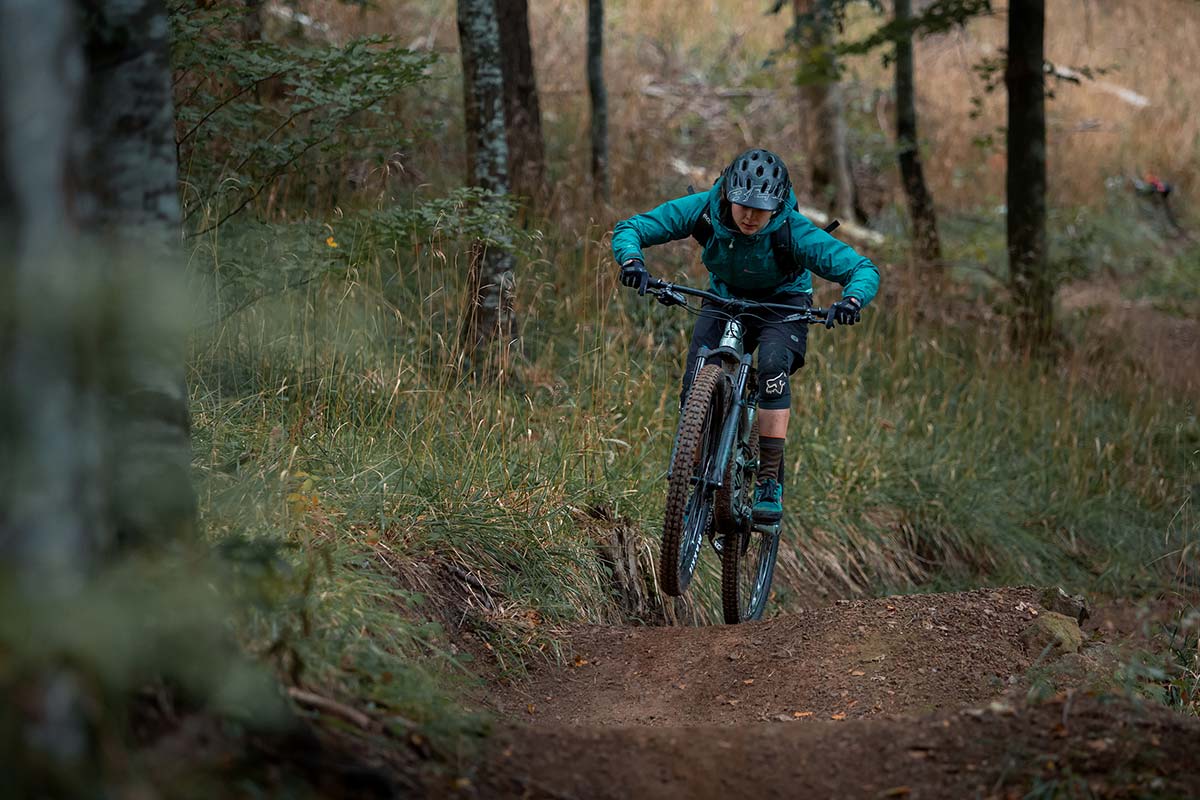
By far and away my favorite thing about this bike was how fun it was to pump through the rollers. I have never ridden a bike that pumps so well. The rebound characteristics of the suspension are tuned very well for this purpose. I was able to effortlessly generate speed through the rollers encouraging me to ride faster. I was having a lot of fun at this stage.
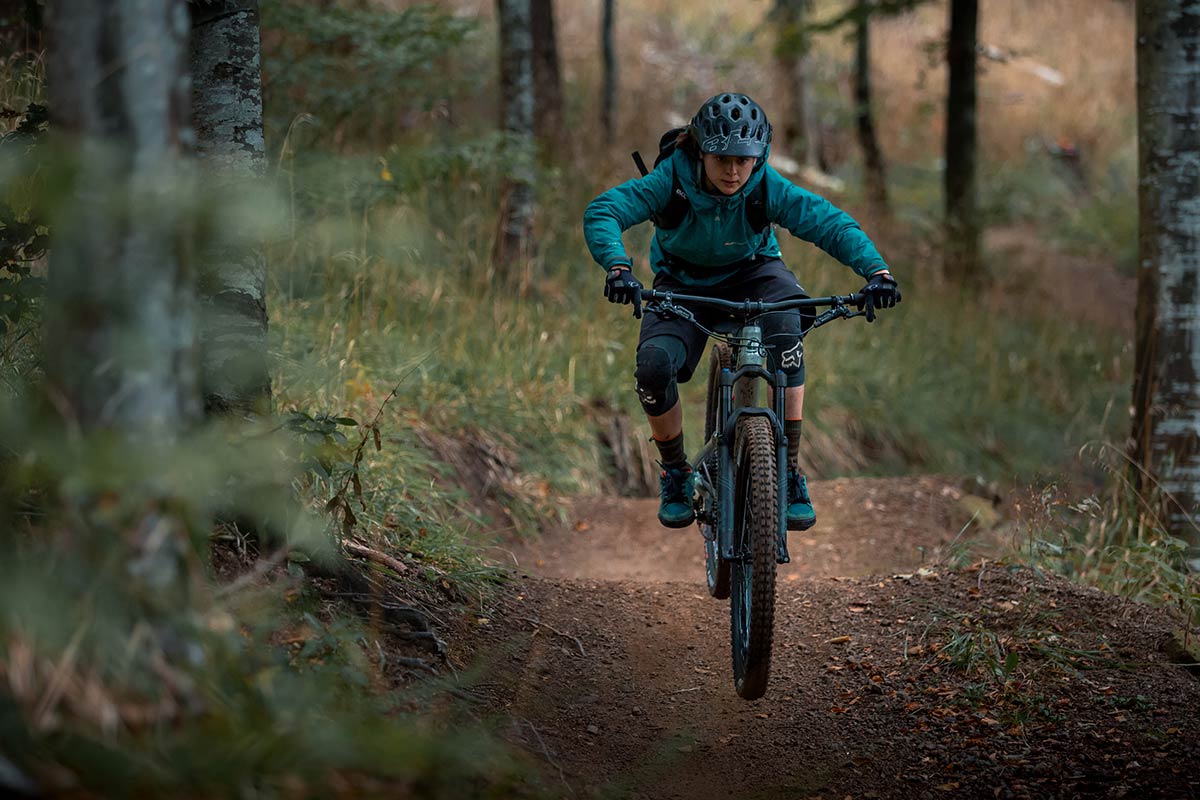
Encouraged by the speed generated through pumping the bike was very playful and easy to send over some smaller jumps. It felt very maneuverable and nimble for a 29er. You could be forgiven for forgetting this trail bike has just 130 mm of rear travel.
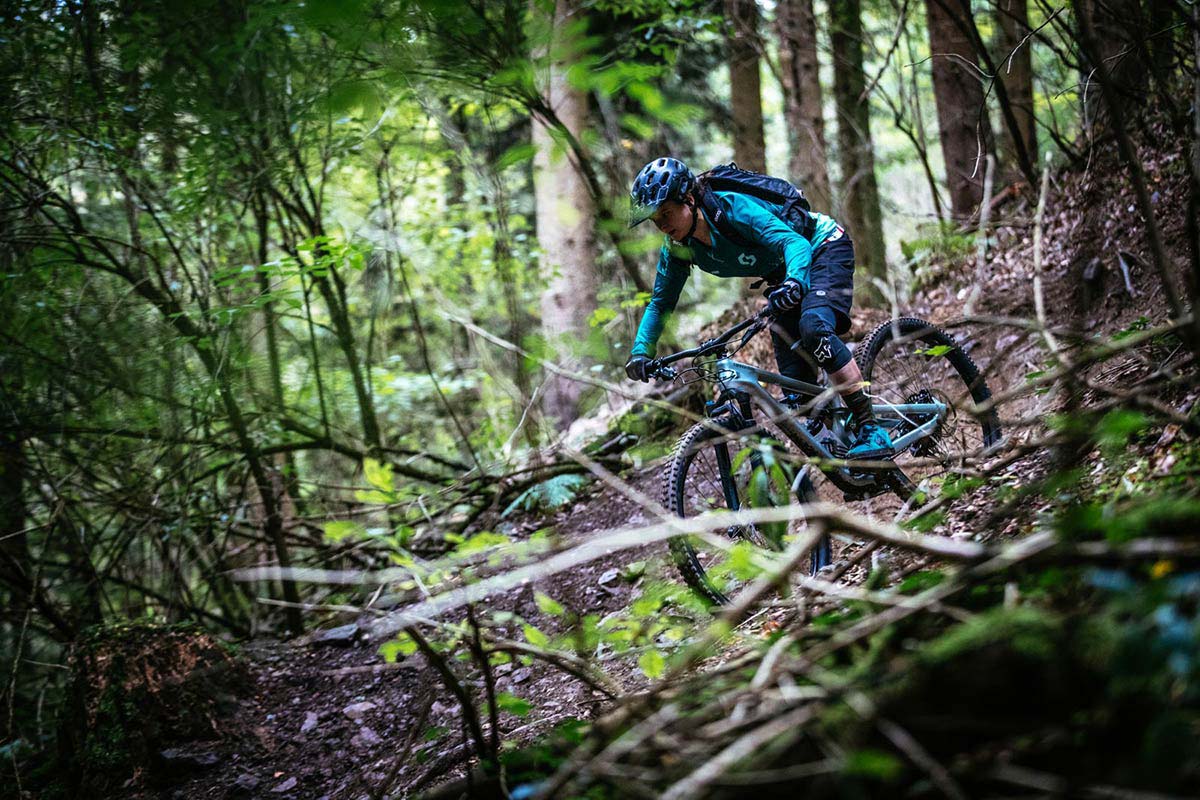
The final descent of the day was more of a flow trail – super fast and smooth with nice supportive berms to rail. I was caught out with a big drop to flat. Using all 140 mm of travel through the fork I was caught off guard with the rebound speed and bucked off momentarily. Almost certainly a rider technique issue though this was the only instance all day where the suspension felt harsh. On this final trail I was left wanting for that extra couple of centimeters of travel i’m accustomed to with enduro bikes.
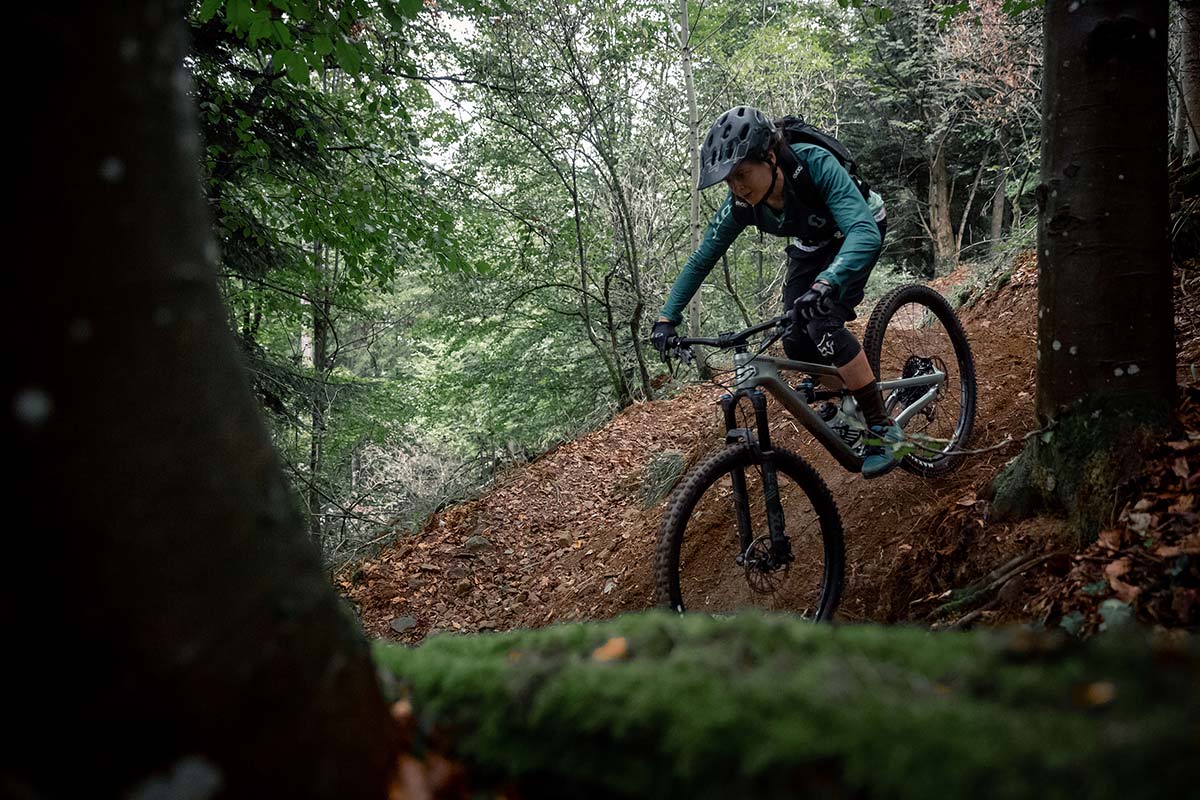
Conclusion
On the whole, the Habit was a real joy to ride, just a trail bike should be. The suspension characteristics gave the bike a playful feel through the smaller drops and senders and especially rollers, and coped very well over the rough and loose terrain providing plenty of stable rear wheel traction. The pedaling efficiency is as good as any. I’d happily take the Cannondale Habit to shred any UK trail center confident that I’d have a blast on the descents and enough energy left in the tank to pedal back up for more.
For the full tech breakdown on the Habit check out the first post here.
